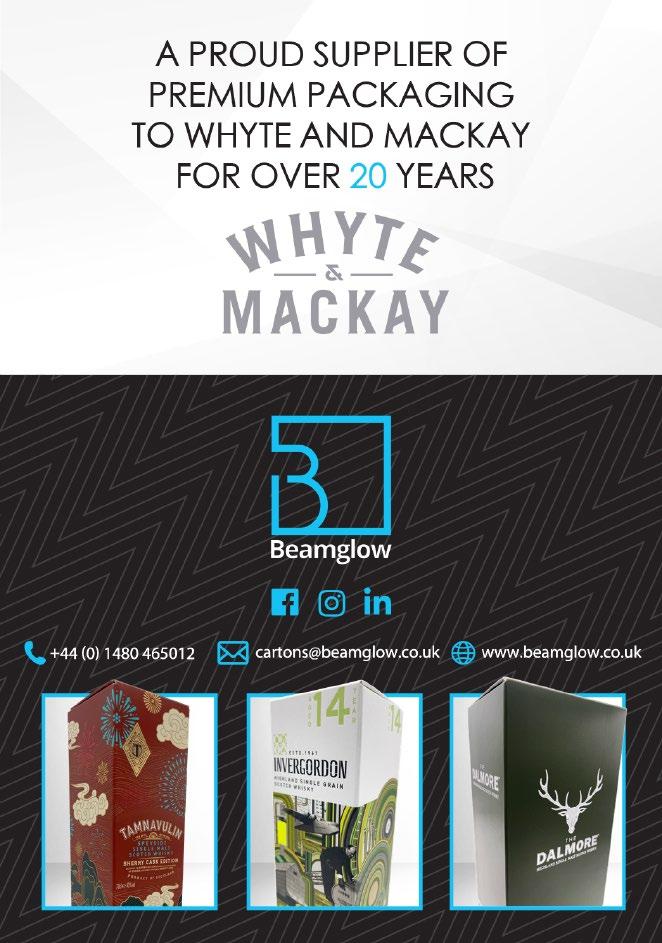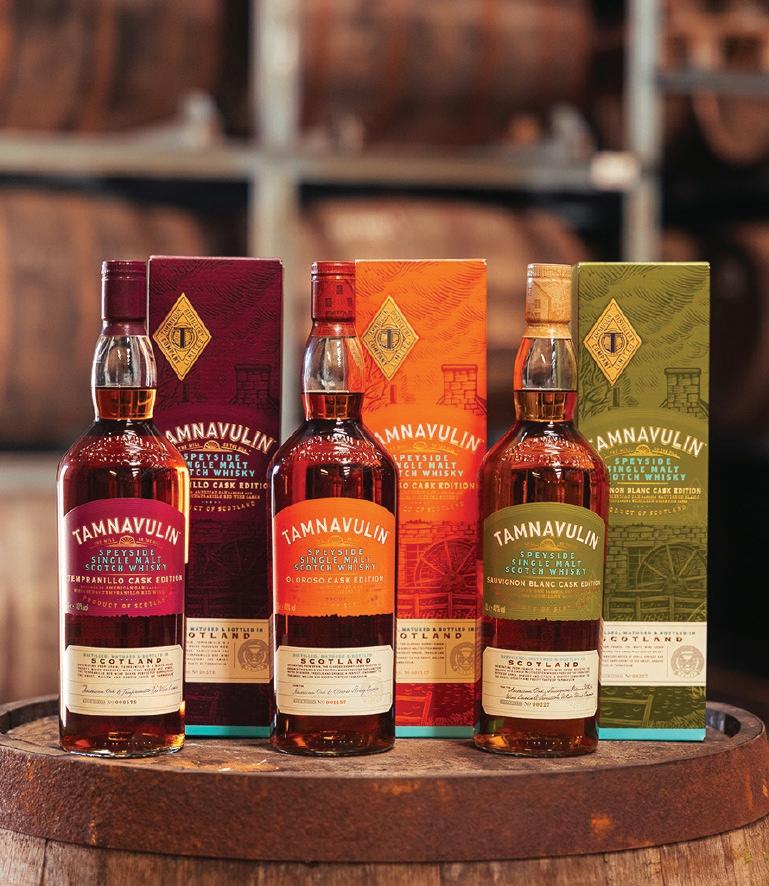






Whyte & Mackay has been a prominent player within the Scottish economy since it first opened its doors more than 180 years ago. Today, the company operates out of five distilleries, producing The Dalmore, Fettercairn, Jura, Tamnavulin and Whyte and Mackay whiskies. Sustainability Manager Rachael Clark and Sustainability Lead Kate Dranginis laid out the company’s journey, during an in-depth interview with Imogen Ward.
From the very beginning, Whyte & Mackay has prioritised the production of greattasting whisky while working in harmony with the natural world.
“Sustainability has always been embedded in what we do and who we are,” explained Sustainability Manager Rachael Clark. “We make Scottish whisky using raw ingredients sourced from Scotland – whether that be our great grain or our fantastic Scottish water, we have always relied on the natural bounty of our homeland.”
Although sustainability has long been embedded in Whyte & Mackay’s rich history, it was only in recent years that the company made it a central focus of its business strategy.
It was in 2021 that the whisky company first introduced The Green Print, its own sustainability strategy. Designed with the company’s core values in mind, the strategy promised to help Whyte & Mackay live up to its corporate duty to society, while playing a positive role within the community and minimising its environmental impact.
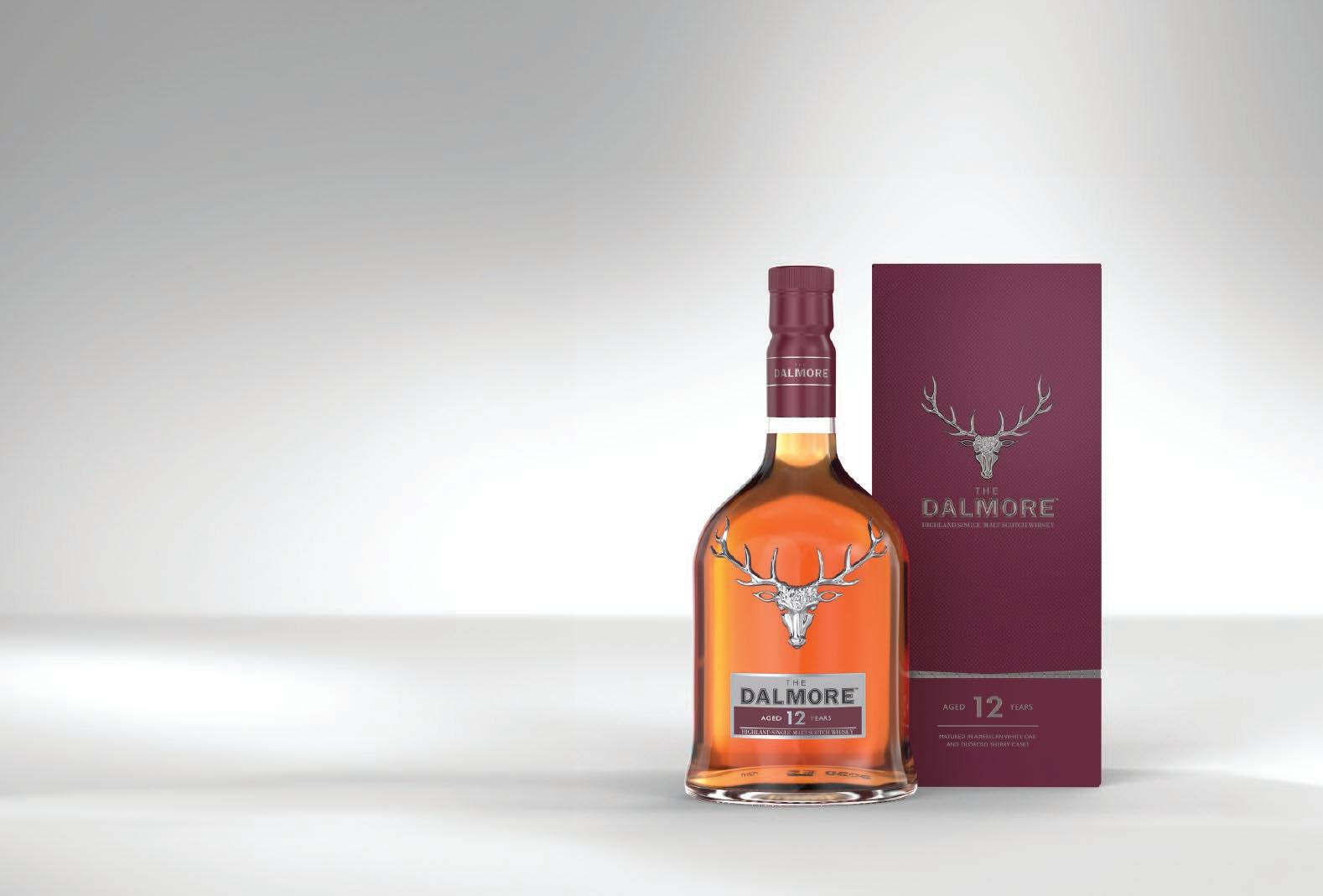
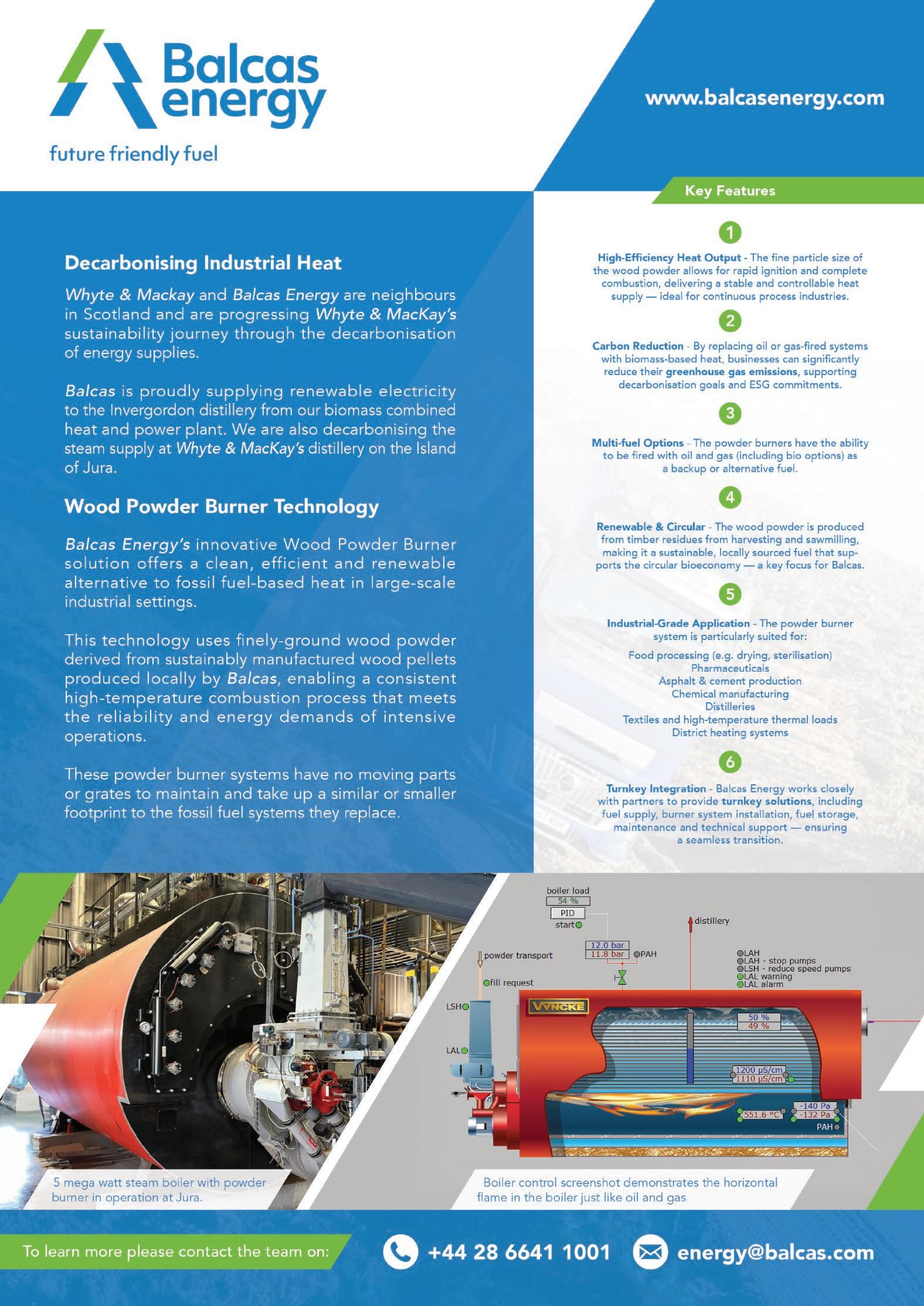
In line with its Green Print strategy, Whyte & Mackay has also placed a significant focus on the recyclability of its packaging, highlighting two main goals: achieving 100% recyclability of all packaging and introducing a minimum of 35% recycled content.
“We have dedicated the last few years to gaining a deep understanding of our packaging and what we want it to become,” explained Ms Dranginis. “We also had to take into account the fact that our packaging innovations are driven by consumer expectations and built our targets around that.”
Having already accomplished an impressive recyclability rate within the high 90s, the company is confident it can achieve its packaging targets by 2030.
The company is continuously searching for innovative solutions to bring it that much closer to its goalposts, regularly relying on its dynamic supply chain to help. One great example being the gift tubes for its Jura Whisky. Originally made of mixed materials,
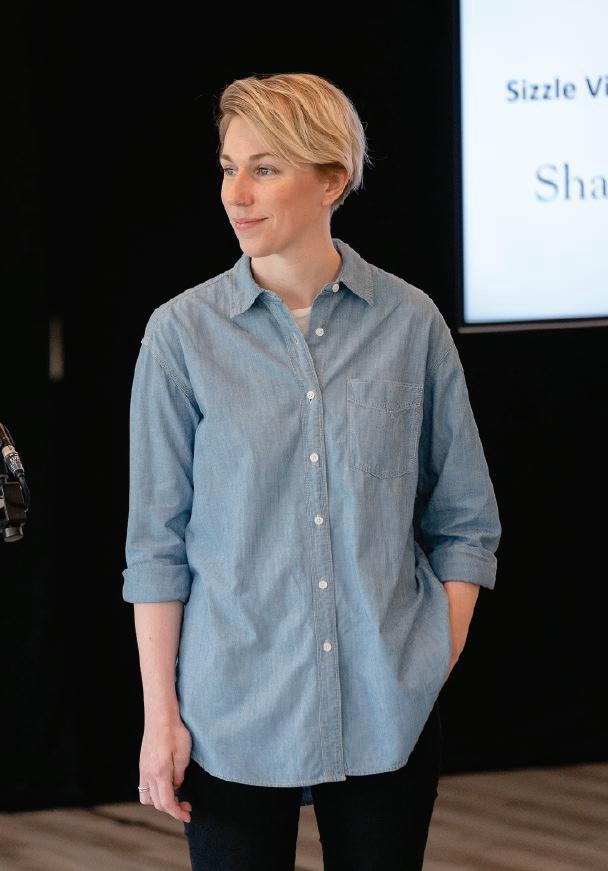
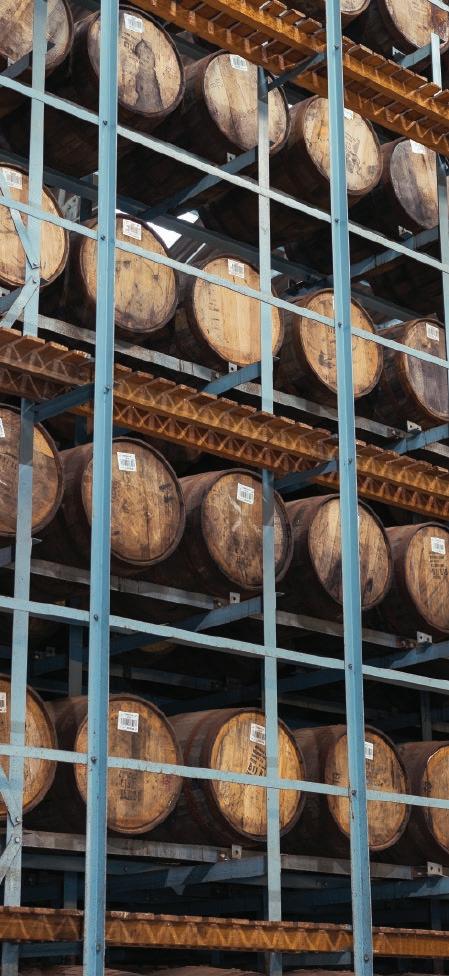
the company added a perforated edge to the cardboard tube so that it could be easily separated from its metal base, ready for recycling.
Whyte & Mackay’s continued collaboration with its supply chain has been mutually beneficial. The company regularly works with local-based companies and is one
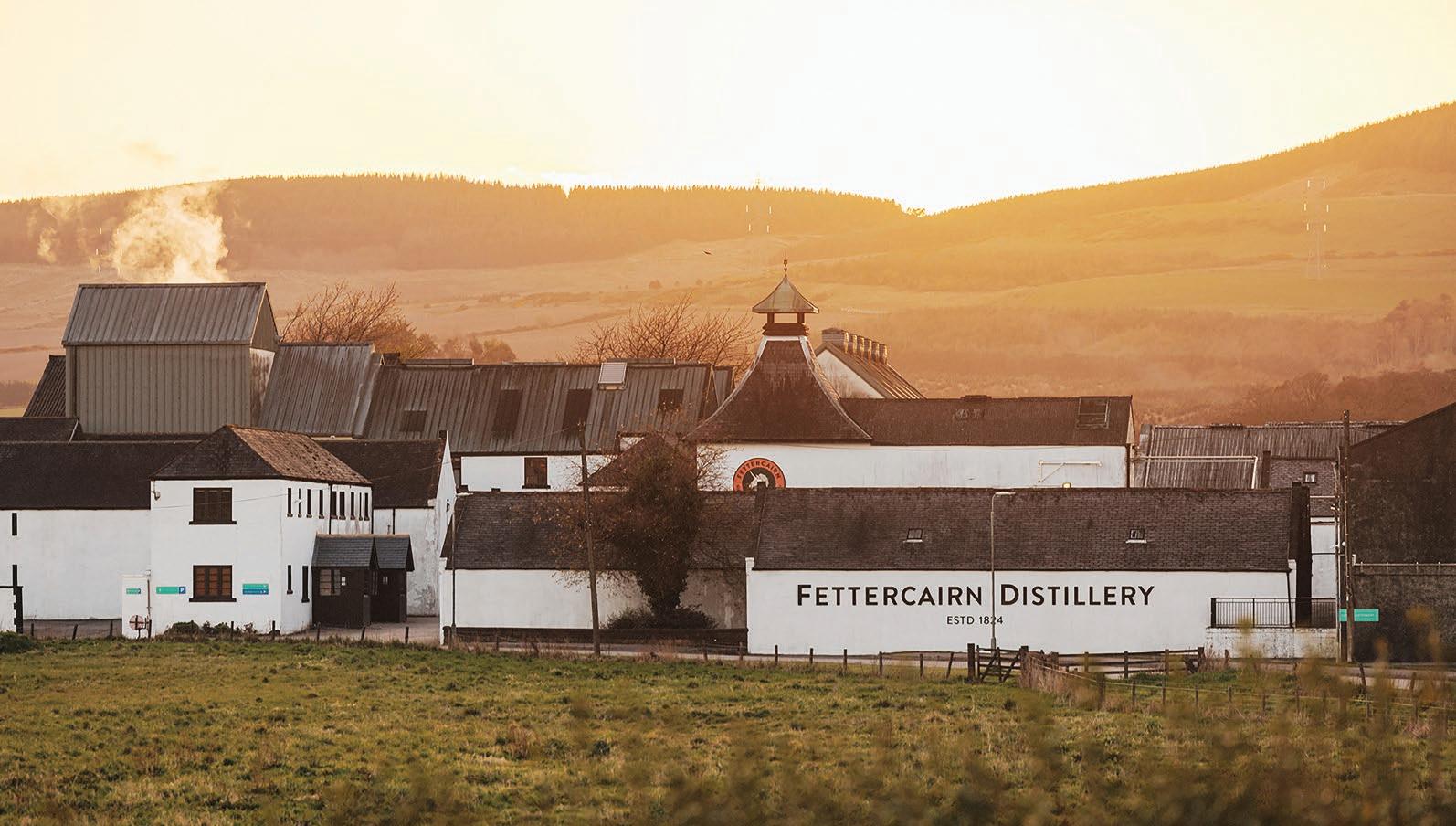
of the only whisky producers to use 100% Scottish grain within its whisky production, having committed to this back in 2019. Since then, the initiative has grown exponentially, with the whisky producer now using 14 approved wheat varieties and purchasing over 250,000 tonnes of wheat locally.
At its Fettercairn location, the company has also introduced the Fettercairn 200 (F200) club, featuring local and approved malted barley growers. All situated within 50 miles of the site, these growers have enabled Whyte & Mackay to build a strong local connection to its supply chain.
“We are aware that when it comes to sustainability, it is not a journey we can take alone,” added Ms Dranginis. “Collaboration is a key focus of The Green Print, and we are so grateful for the roles our suppliers have played in making The Green Print and Whyte & Mackay a success.”
As it looks towards 2030 and beyond, Whyte & Mackay intends to continue working closely with these companies and farming communities. With their continued support, Whyte & Mackay is confident it can see The Green Print through to fruition, while enacting a greener, more efficient way of operating.
“I have been with the company since the inception of The Green Print and it has been an honour to witness this strategy grow and develop into a core pillar of the business,” concluded Ms Clark. “Sustainability brings companies and communities together, and I look forward to seeing the impact our sustainability journey will have in the years to come.”
